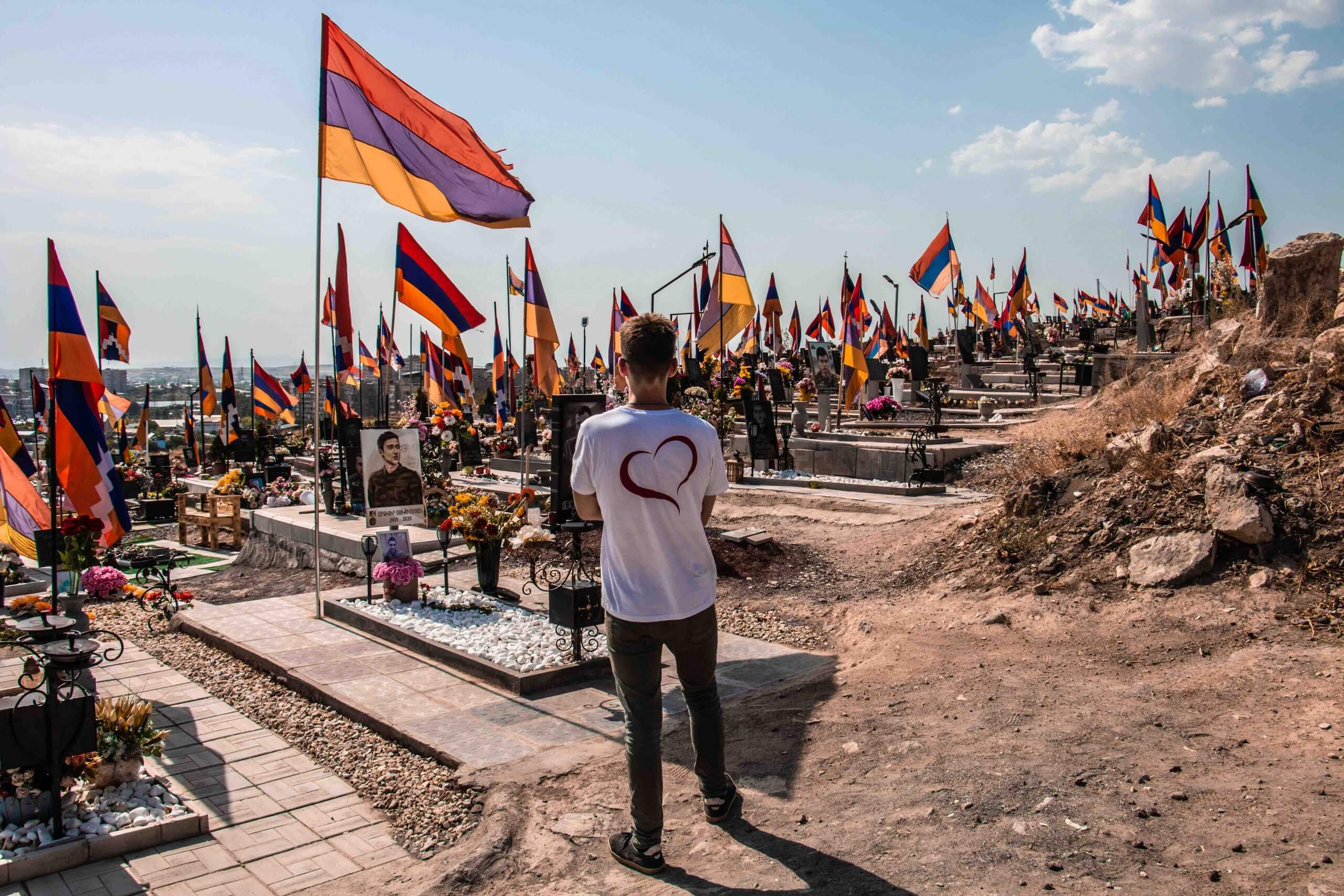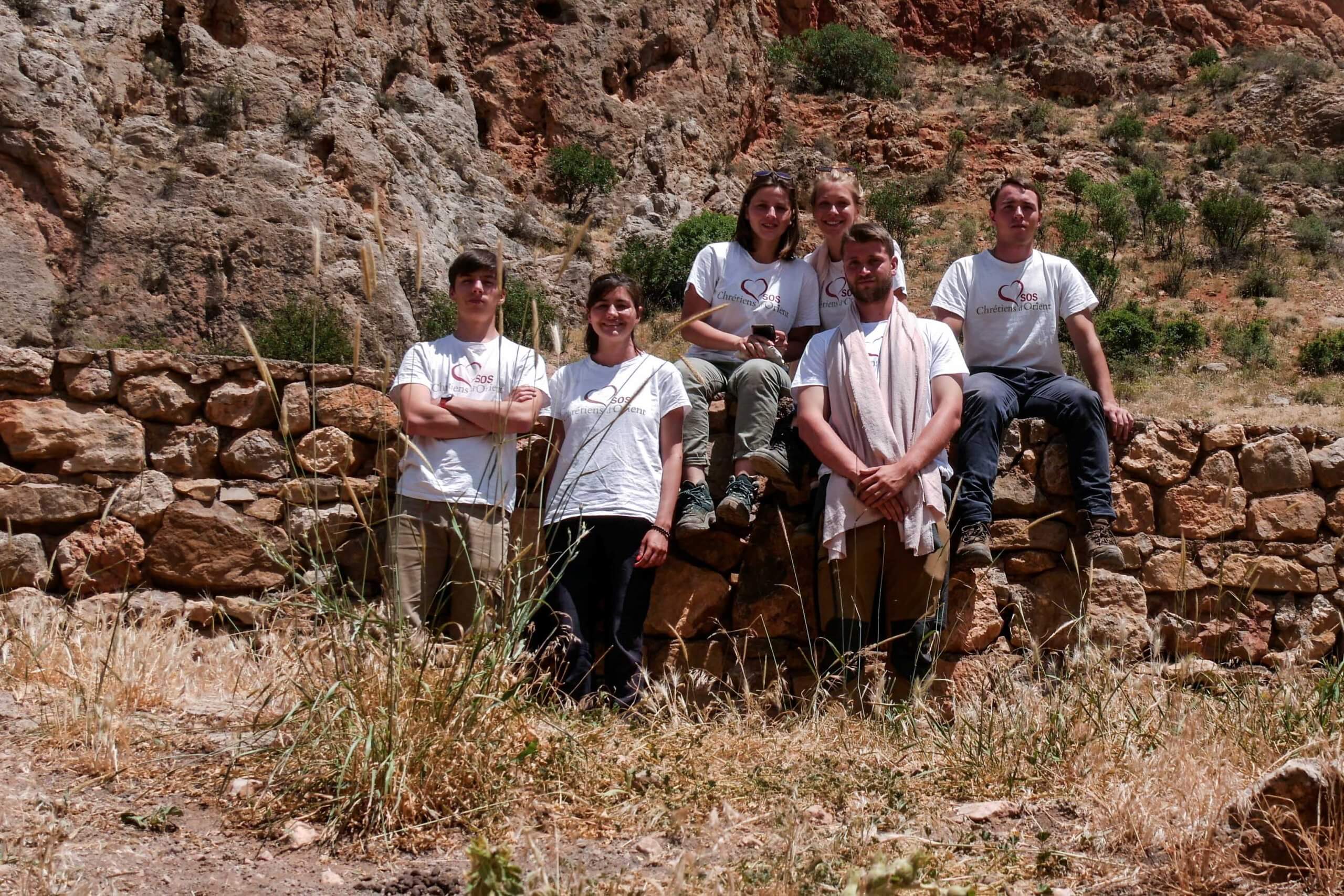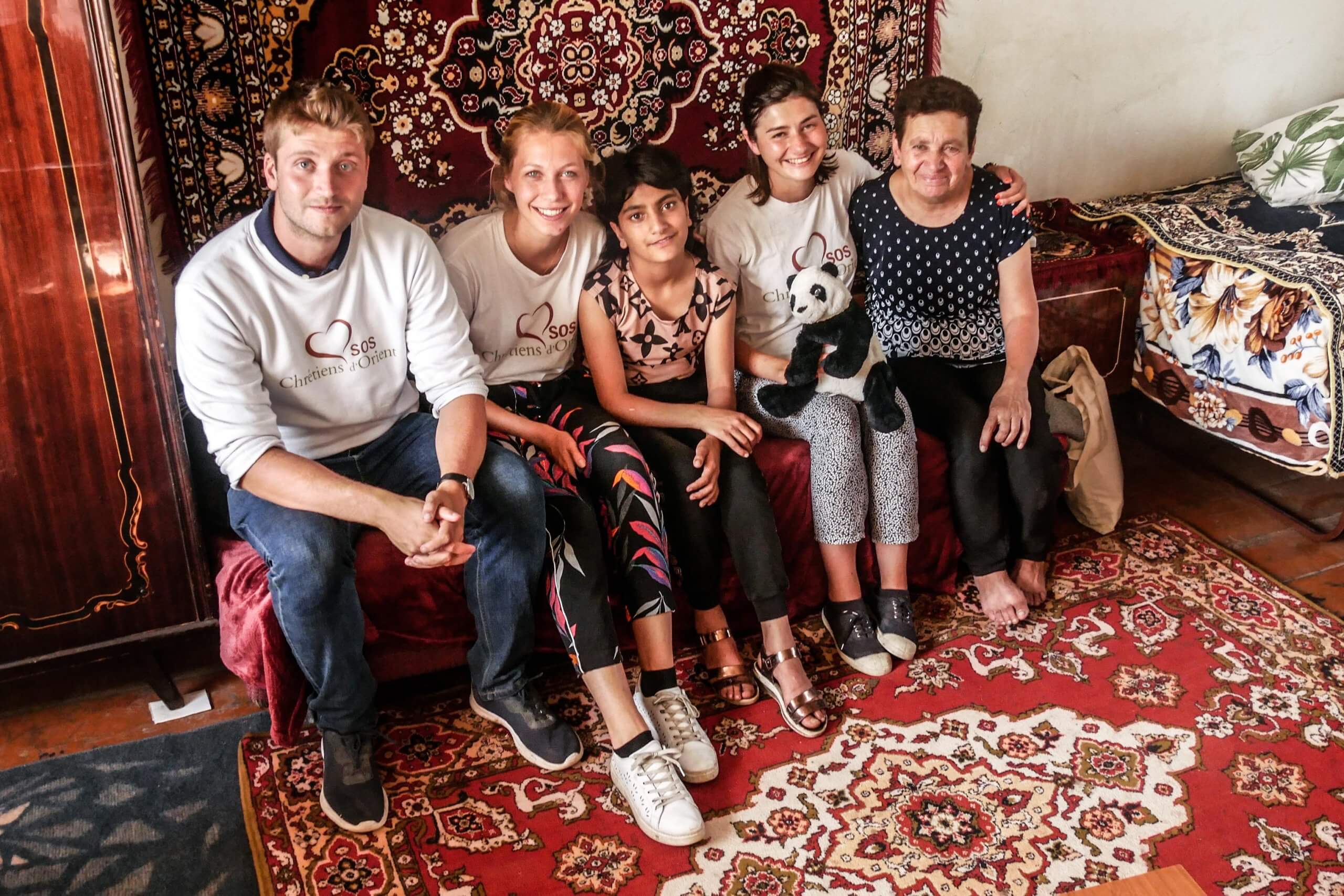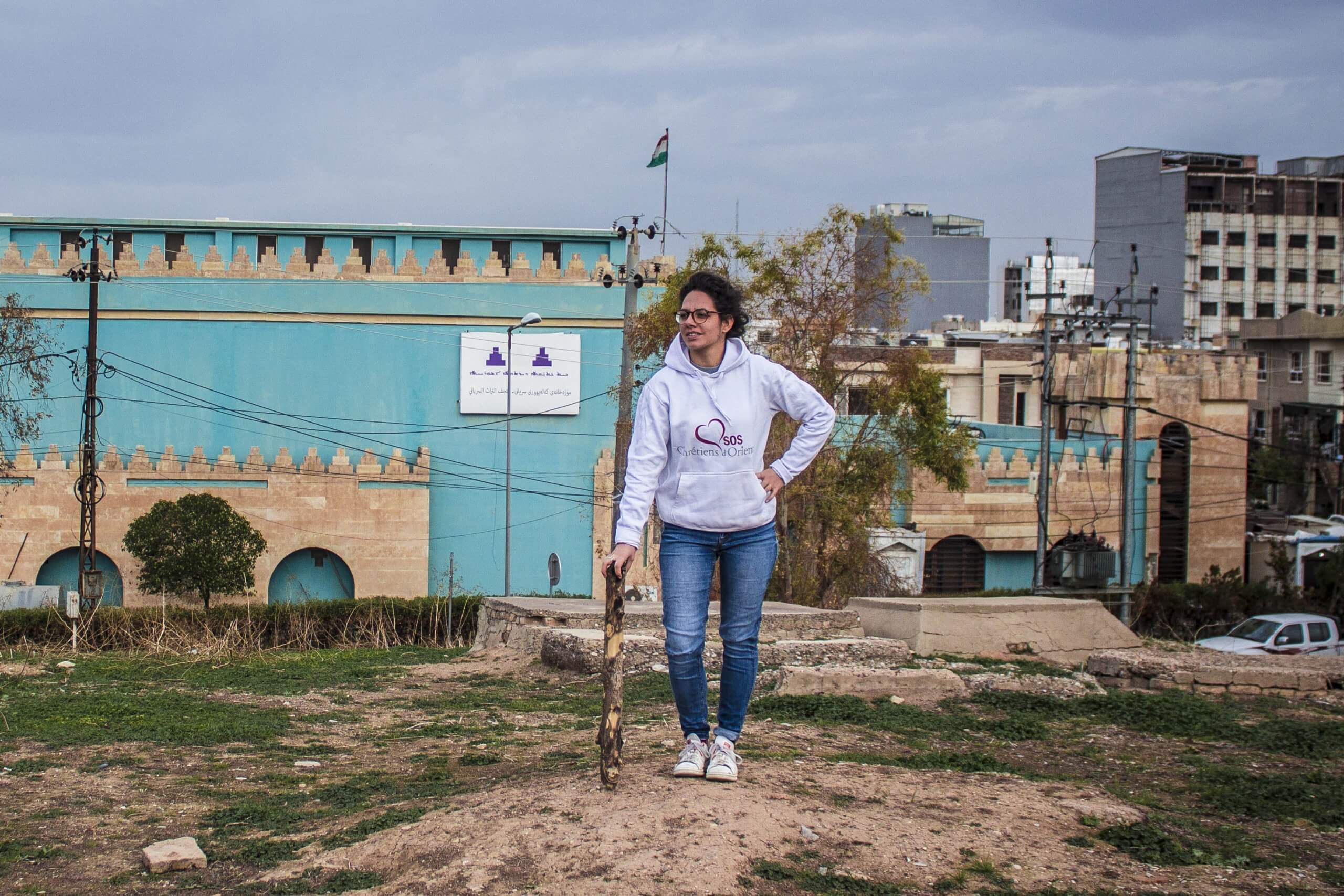“I was given too much before the desire, I forgot the dreams and the thanks, all those things that had a price that make the desire to live and the desire and the pleasure too” these words of Johnny echo in my head since I left my mission…
It’s been a few hours since my plane took off and the memories are piling up in my mind in a long line waiting patiently for my heart to review them. As they pile up, ever more pressing and ever more shouting, my eyes look into the distance and, like little slides, mirror those Armenian days. I then become truly aware that I too have been given too much and that this single month far from France, far from my little Provençal home, has brought me back to the essential.
After this year of staying behind a computer screen tediously following abstract courses, after these long months of living in a small student’s room thus cutting myself off from all human contact, after this invisible barrier due to the covid which begins to be created inexorably between oneself and others, Armenia gave me back the desire to turn towards people, gave me a pressing desire to improve, on a small scale, the lives of people in need and made me thank God for being able to feel the living faith of the Christians of the East in their daily lives.
Leaving with SOS Chrétiens d’Orient had been a real dream for two years and my arrival in Goris, in the South-East of Armenia, was much more enriching than I thought. I was very lucky to be sent to the provinces quite quickly after a stifling week in Yerevan, the capital, where I felt more like a western tourist than a determined volunteer, a role I had come to seek.
These moments of visit nevertheless immersed me in the painful and deeply patriotic atmosphere of the Armenians. In front of me, thousands of red, blue and orange flags floating in the soft current of the air formed a tricolour sea under the imposing and icy gaze of the snow-covered Ararat… such was the moving spectacle offered by the military cemetery in which I had come to meditate. “What a shock, these soldiers were my age when they offered their humble lives to their country. What a shock, these soldiers were my age when they gave their humble lives for their country. They had left valiantly one morning in September, never to return.

Questions were nagging at me: would I be able to continue their work by reaching out to their children, sisters, parents and grandparents and offering them some of my time? Would I be able to continue their struggle peacefully by distributing smiles, holding out my hands, carrying out the missions that were entrusted to me and praying my rosary?
The graves passed before my eyes, sad and stunned in the presence of so much sorrow. There was a perceptible discrepancy between the serenity of the young bodies lying under the earth, the roses and the portraits, and the older living people who were still standing, eager to put an end to these horrors. The tone of the mission was set. I was in the presence of a people bereaved by a recent war, still dangerously confronted, provoked and humiliated by their Azeri enemy, and who needed to see young Christians understand their pain.
“It is difficult to be 20 years old in 2020”, Emmanuel Macron said to French youth, referring to the fact that they would not be able to fully enjoy their lives during the year because they would be deprived of this or that bar or discotheque. I had felt this difficulty, but it seemed to me to be much less in view of the life that these young soldiers had had to lead. A difficult life, but how much fuller and deeper than most of ours. From a French point of view, the president’s words sounded hollow, but from an Armenian point of view they took on a real meaning: yes, in 2020, in Armenia, young men of 20 had lost their lives and others would lose theirs. In this country it was hard to be 20 in 2020.

So it was in Goris that I was able to feel useful by actively participating in the life of the mission. The five volunteers, who were already there, trusted me and a climate of mutual help and joy was immediately created. Enguerrand, Axel, Déodat, Marie, Astrid, thank you for your commitment, which is longer than mine, and which allows beautiful actions in the small town. Evaluations, donations, French lessons, good implementation of projects were explained to me and I could put on the SOS T-shirt to proudly accomplish my tasks.
These different activities allowed me to meet Armenians that I will not soon forget. Melania, Carmen, Serob…all people on whose front the war left its painful mark and aftermath.

Melania, a woman in her seventies who lost her husband and son in October 2020, has been managing to provide for herself and her young daughter Suzie ever since. She always gives us a warm welcome when we visit her and enjoys unloading her bag of sorrows by confiding in us.
Being a volunteer with SOS Chrétiens d’Orient is not only about doing activities, it is also about knowing how to sit at a table to listen attentively and kindly to the often tragic words of people and to reassure them as best we can, either by words or by concrete help.
Carmen and Serob are two displaced people from Artsakh. Despite her untreatable eye condition, Carmen has a dream of a travelling theatre and her eyes sparkle when she mentions it. She clings so tightly to her dreams that if we close our eyes we can imagine her in the squares of various villages delighting the hearts of young and old with her animated puppet shows.
As for Serob, this Armenian commando with a deep soul, he rebuilds his life in the much more humble job of farmer. With what courage all these people live… Their husbands, sons and brothers have been taken away from them, they have been torn from their native land, they have been deprived of their resources and yet they are there in front of me smiling and offering me fruits from their garden and a hot drink. How can I tell them that neither tea nor coffee warms me, but rather their acceptance of the crosses they carry admirably.
“Look at the birds of the air, they neither sow nor reap, and yet their Father in heaven feeds them” The Armenians, trusting in God, know how to abandon themselves to divine Providence. I was immediately struck by the serenity and gentleness of the Armenian landscape, by the beauty of the churches and by the crosses enthroned on the mountains. When they regularly look at the cross, it is not pain that moves them but trust. The Armenians have taught me to look at the cross differently because there is a real apostolate through it that I can carry out in France. My real mission can begin with my landing.
“Lord, where there is darkness let me bring light, where there is sadness let me bring joy.”
Raphaëlle, volunteer in Armenia.

Head of volunteers